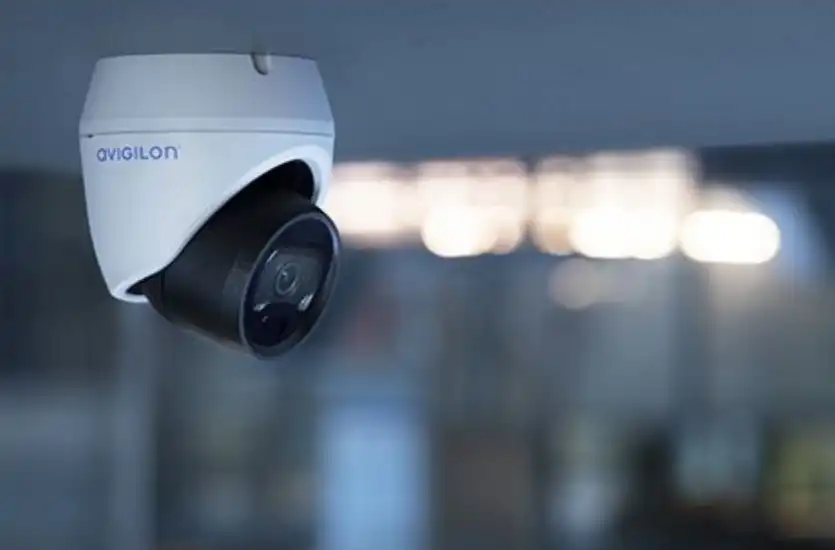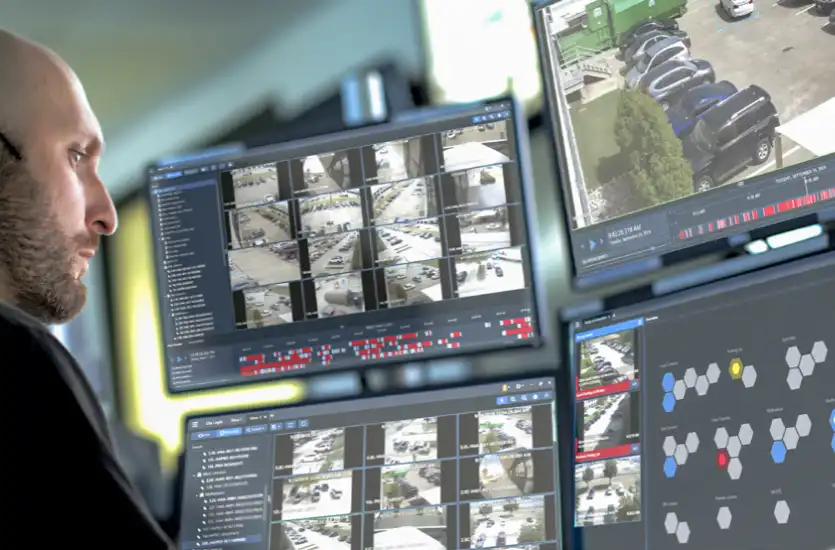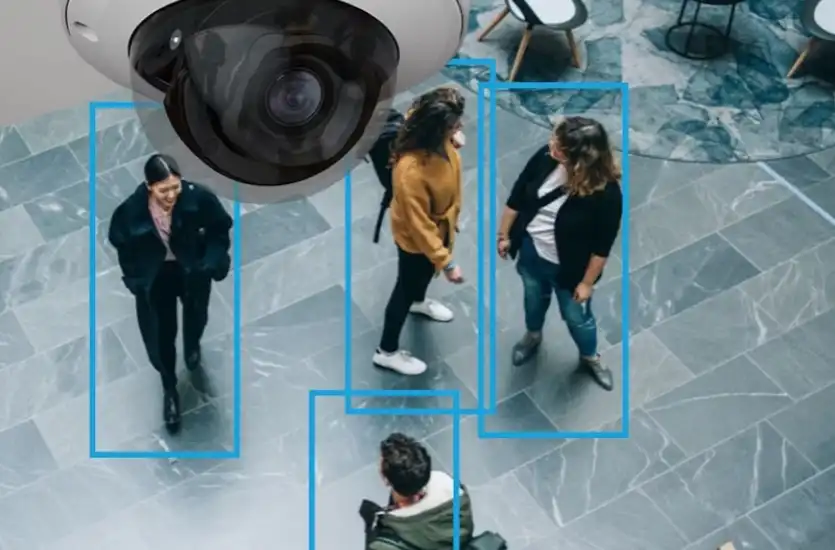Protecting your business is an important responsibility, and depending on the business, it can be a complex task. With 90% of small business retailers having experienced theft, it’s natural that business owners look for a way to deter crime. One of the best solutions is the use of security cameras.
The very presence of a visible security camera can help send would-be thieves on their way. And in the event of internal theft and other crimes, these cameras can help paint an accurate picture of what occurred. But with so many options, what is the right type of security camera for your business?
What To Consider When Selecting a Security Camera for Your Business
Before we get into the specific security camera types, let’s take a look at the features and requirements that you will need to consider.
- Environmental factors: Consider whether the camera will be placed indoors or outdoors. Outdoor cameras need to withstand weather conditions and often include features like weatherproofing and protective casings. Lighting is another important consideration.
- Specific business needs: Wide spaces may require cameras with pan, tilt, and zoom capabilities, while smaller areas can be served by fixed models. Decide if visible cameras are preferred for their deterrence effect or if discreet models are better suited for the environment.
- Budget and scalability: Features like storage, maintenance, and future upgrades can affect your overall investment. If you plan to expand your system over time, choosing cameras that are easy to integrate into an evolving setup will help accommodate future growth without significant overhauls. Balancing cost with functionality also helps you build a system that meets your needs.
Additionally, think about whether your new cameras need to integrate with your existing security setup, such as alarm systems or access controls.
Overview of Different Types of Security Cameras
Now that you know the considerations that should be part of your decision, let’s look at the most common security camera types. Here’s what you need to know.
Fixed Cameras
Fixed cameras, just as their name implies, remain stationary, often offering wide-angle lens options to cover specific areas. They are best for monitoring entry points, cash registers, or other fixed locations where ongoing surveillance is needed.
These cameras are known for their simplicity and reliability, making them an easy choice for many businesses. However, their limited range means they cannot cover large or multiple areas without additional units, which could increase overall costs.
Pan-Tilt-Zoom Cameras
Pan-tilt-zoom (PTZ) cameras offer remote control capabilities, allowing users to pan, tilt, and zoom the frame as needed. This flexibility makes them ideal for large spaces such as parking lots, warehouses, or retail floors, where wide-area coverage is necessary.
While their versatility is a significant advantage, these cameras can be more expensive than other types. Without proper automation, there’s also potential for underutilization or misuse, which could limit their overall effectiveness.
Bullet Cameras
Bullet cameras are easily recognizable because of their long, cylindrical design. They are typically weatherproof and designed to monitor perimeters or specific outdoor zones. They are often installed outdoors.
Their visible presence can deter unwanted activity, but this same visibility also makes them susceptible to tampering. Bullet cameras are a practical option for businesses looking for a straightforward outdoor surveillance solution, though they may require additional protection in high-risk areas.
Dome Cameras
Dome cameras feature a rounded, spherical design that provides a discreet and professional look. You’ve likely seen them in retail establishments when you’re out shopping. They are commonly used indoors for multi-directional coverage in spaces like lobbies or office areas.
Due to their tough exterior, dome cameras are often vandal-resistant. However, their subtle appearance may not be as intimidating as other types. Dome cameras are an excellent choice for businesses seeking unobtrusive surveillance with the flexibility to cover multiple angles.

Other Specialized Cameras
In addition to commonly used camera options, some types of security cameras perform more specialized functions. These include:
- Thermal cameras: These cameras are designed to capture heat signatures, making them ideal for areas with little to no light. They are often used in specialized environments for added security.
- Wireless cameras: Offering simple installation, these cameras provide flexibility in placement and can connect to networks without extensive wiring. They are especially helpful in areas where installation logistics might be challenging.
- Hidden cameras: Perfect for covert monitoring, these cameras are used in sensitive areas where discreet surveillance is needed. Their small size allows them to blend into the environment, offering unobtrusive coverage.
These cameras may not have as wide an application as more conventional options, but in the right situation, they can be very practical and effective.
Factors To Keep in Mind During Installation
Once you’ve selected the best security camera type for your business, it’s time to focus on installation. While you can take a do-it-yourself (DIY) approach, we recommend working with professionals who bring valuable skills and security knowledge to the table. This is important for both effectiveness and compliance.
Effective Placement
Proper placement of security cameras is a must for maximizing coverage. Blind spots should be avoided to prevent any areas from going unmonitored. Additionally, the height and angle of each camera should be carefully considered to capture clear footage while protecting the equipment from potential tampering. Working with a professional installer helps to optimize camera placement, taking into account both the layout of your business and the specific areas that require monitoring.
Regulatory Compliance
Installing security cameras also requires attention to privacy laws and regulations. Businesses must notify employees if their activities are being recorded, and areas where privacy is expected, such as restrooms, must not be monitored.
Additionally, proper data storage and retention policies must be established to meet legal standards. Partnering with experts can provide valuable expertise in these areas, helping you implement a system that supports compliance and meets the security needs of your business.

Maintaining and Upgrading Your Security Camera System
Though most security cameras are built to withstand some pretty harsh conditions, it doesn’t mean that maintenance isn’t required. And over time, especially as your business scales and grows, you may want to make some upgrades.
Routine maintenance includes cleaning the lenses to avoid blurry footage, checking connections to prevent disruptions, and keeping software updated to maintain functionality and compatibility with newer technology. A consistent maintenance schedule helps extend the life of your equipment and keeps your surveillance system operating efficiently.
Staying informed about the latest security technology advancements can also provide improvement opportunities. Artificial intelligence (AI)-powered cameras, facial recognition features, and smart system integrations are just a few innovations that can enhance the capabilities of your security setup. Monitoring these trends allows you to identify upgrades that align with your business’s needs and help future-proof your security.






